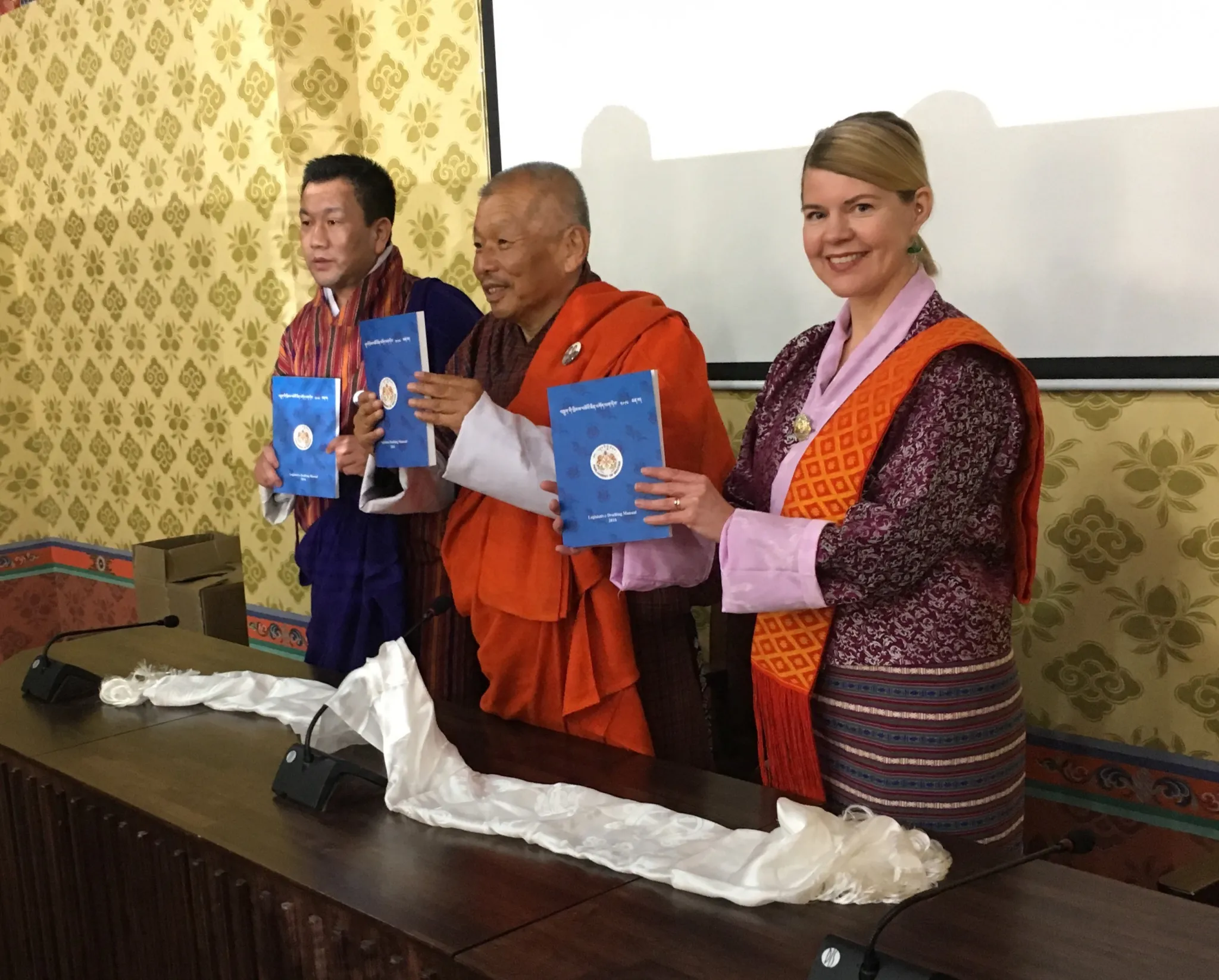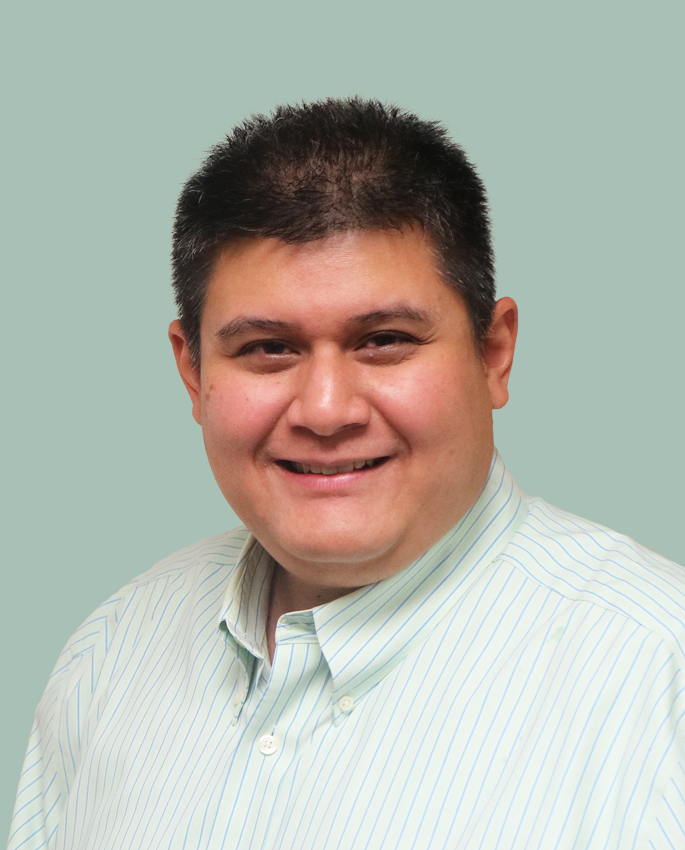Building sustainable democracy in Bhutan: Findings from International IDEA’s high-level visit

Bhutan is halfway through its second five-year electoral cycle and unsurprisingly everyone we talked to during the recent high-level visit felt its transition to democracy is not over yet. From women’s representation and participation to quantity of civic education and from devolution of powers to more effective national parliament, Bhutan is still developing its democratic institutions and processes.
Representation and Participation of Women
Most talked about was the level of women’s representation and participation in politics. The recent local elections showed a two-fold increase in the number of women elected. However, at 11 per cent, it is still far from the critical mass of 30 per cent that the Convention on the Elimination of all Forms of Discrimination against Women (CEDAW) prescribes. Bhutan, being a state party to CEDAW since 1981, has been debating over whether or not quotas for women in parliament should be introduced. According to the Foreign Minister, Lyonpo Damcho Dorji, the government has proposed women’s quota to be included, however, women MPs rejected it. The reason is quite understandable, where women do not feel the need to be provided with such assistance. Let women succeed in gaining seats in their own right.
Those Bhutanese women MPs are not alone. We have recently observed that the same sentiments also exist in other countries, like Fiji. What then is the rationale used by those 54 countries that have gender parliamentary quotas? Leena Rikkilä Tamang, International IDEA’s Regional Director for Asia and the Pacific, at a television talkshow on Bhutan Broadcasting System (BBS) revealed that quotas are used to speed up the journey towards reaching the 30 per cent critical mass. Her native country, Finland, currently has one of the highest women representation level at 41.5 per cent, but they have not had any quotas. However, it took them 100 years to reach that level. Is it best to wait or would affirmative action be necessary? Can we think of gender neutral quotas, so as to assure that neither women or men represent more than 60 per cent of a given parliament? IDEA’s Regional Director also reminded talk show audience that quotas do not not mean that you would not be elected by people. There are many ways to organize electoral quotas.
Mongolia–Bhutan: An Exchange Between Democracies
During the visit, we were fortunate to be joined by Ambassador Gonchig Ganbold, Mongolia’s Ambassador to Bhutan, who represented his country as this year’s chair of International IDEA. His involvement was well suited as the leaders of both countries acknowledge the spiritual connection between them. Both have strong Buddhist heritage and are landlocked countries located between two giants. The Ambassador shared that Mongolia’s democratic journey has not been without pitfalls. Democracies should learn from each others’ experience, particularly in the first years or even decade of its democratic being. For this, the book entitled Democratic Transitions: Conversation with Leaders, jointly published by International IDEA and Johns Hopkins University, is particularly useful. The Prime Minister, Lyonchhen Tshering Tobgay told us that just hours before we met, he was reminded of that book and pulled it off his bookshelf. Such is his appreciation for learning from the experiences of other leaders.
Collaborative Approach to Democracy Building
Indeed, Bhutan’s democratic development is multifaceted. The government and other state institutions are doing their best to create systems and processes that adhere to democratic principles. Civil society organizations (CSOs) are doing their part in helping to entrench such principles within society at national and grass roots levels. We came to know a number of such CSO initiatives during a meeting with a number of them, where International IDEA became inspired to collaborate in their efforts. And then there are the young generation who during the public lecture at the Royal Thimphu College showed their curiosity about how democracy works in other countries and their eagerness to make democracy work in Bhutan. To make democracy work, these groups should work together. Each has a role to play. Each can help and support the other. In civic education, for example, it is globally understood that it is not a monopoly of the state. In fact, the more are involved, the better the result. However, granted, the concerted effort should be within a certain corridor, which usually stems from the Constitution, to avoid conflicting messages. Another example is the effort to raise voter turnout in elections. The responsibility for ensuring high voter turnout should not only be put on the Election Commission’s shoulders. CSOs, the youth and even political parties may also be mobilized to promote voter turnout. Remember that in Bhutanese context democracy is from the King, for the people and by the people. His Majesty the Fourth King gave democracy to the people and it is now up to the people as a whole to take it forward. As such, the people as a whole should work together.
Speaking of concerted efforts by the people, International IDEA in partnership with the Royal Research and Advisory Council (RRAC) under the leadership of former Chief Justice, Lyonpo Sonam Tobgye and former Chief Election Commissioner, Dasho Kunzang Wangdi, with whom we met during the visit, trained a group of people from academic institutions, CSOs and government agency to conduct a citizen-led assessment of democracy using International IDEA’s State of Democracy framework. This assessment would create a baseline analysis on where Bhutanese democracy is in the making. The RRAC will soon publish a strategy document suggesting a method for how such an assessment can be conducted in Bhutan. Based on our discussion with the Director General of the Royal Institute of Management, a top government educational institution, the Institute may coordinate the concerted effort in implementing the strategy and thus, the assessment. CSOs and other educational institution such as the Royal Thimphu College, are keen on taking part. International IDEA shall continue to provide technical support.
The 12TH Five-Year Plan
The country’s development is guided by Five-Year Plans issued by the Gross National Happiness Commission (GNHC). For those who did not know, measurement of the success of governance in Bhutan is to achieve Gross National Happiness (GNH), which is a concept coined by the Fourth King where Gross National Product (GNP) should not be the indicator of success in Bhutan. The income of a country does not matter if its people were not happy. GNH is thus more important than GNP.
The current 11th Five-Year Plan extends until 2018. Despite it having more than two years to go, the GNHC has started drafting the 12th Plan. The results of the aforementioned assessment of democracy may contribute to the development of the next five-year plan, particular for its section on democracy. During our meeting, GNHC’s Secretary was informed of this possibility.
The 12th Five-Year Plan will most probably focus on the softer aspects of development, such as towards people, systems and processes.International IDEA will be able to make direct contribution as it has already been providing technical support for capacity development and improvements of processes. We are henceforth looking forward to strengthening our cooperation with Bhutan.
Capacity Development of the Election Commission
Despite the local elections having been successfully conducted on 27 September, the Election Commission is still busy with repeat elections and a National Assembly by-election due to the resignation of an MP. International IDEA provided capacity development support that enabled the Commission to create its own voter information posters and video. Building in-house capacity for this is deemed important by the Commission as voter information, voter education and civic education (VIVECE) are continuous in nature and cost-intensive. In-house development of materials could reduce cost significantly. International IDEA is glad to support this vision.
It has been a long term desire for the Commission to have a training and resource centre. International IDEA provided furnitures and equipment for the Democracy House (the Commission’s offices) Library and the adjoining training room. The rooms were stocked during the visit and a plaque has been placed to commemorate it. We hope the library and training room will be operational very soon catering to knowledge and skill development of not just the Commission’s staff, but also others as the Commission sees fit.
Support to Parliament
During the public lecture at the Royal Thimphu College, the Honourable Chairman of the National Council (upper house), Thrinzin Dr Sonam Kinga, was present. He acknowledged International IDEA’s ongoing support and would like to see it sustained. A few days later, the Honourable Speaker of the National Assembly (lower house), Tshogpon Jigme Zhangpo, during our courtesy call expressed his appreciation for International IDEA’s continued support. That morning the Legislative Development Manual, a product of our cooperation, was launched. May together we continue to produce such meaningful and useful tools.
Generally, International IDEA’s assistance to Bhutan is much appreciated in the midst of reducing international aid to Bhutan overall due to Bhutan’s graduation into a lower middle income country. We have been fortunate to being able to sustain our assistance into 2017, but the long term outlook is still unclear. We continue to hope that donor countries realize that state of democracy should not be subjected to the same indicators as economic development. While a country may do well economically, the same may not be said on its democratic development. Bhutan’s advancement in economic terms is much welcomed, but its democratic institutions and processes are still in need of development. By their own admission, international technical assistance is required. However, without the support of donor countries, it would be very difficult for such assistance to be provided.




